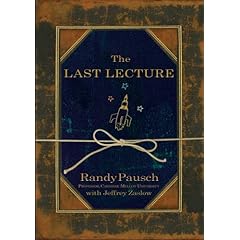Stocks are currently in a “a bear market rally,” and will probably retest their lows of earlier this year, George Soros says.
“I think we’ll retest the lows, depending on what measures the authorities take,” Mr. Soros said in an interview with The Wall Street Journal Wednesday. He made similar comments later that day in a discussion at the Council on Foreign Relations in Washington. “We may go beyond” those lows, he said. |
But he also said the worst has now passed for the credit markets and spreads between yields and risky bonds and Treasurys will not return to their highs of a month ago. “The acute phase of the credit crisis, or financial crisis, is abating,” said Mr. Soros. Mr. Soros, chairman of Soros Fund Management which advises the Quantum funds, is one of the world’s most famous and successful hedge fund investors. “The markets are breathing a sigh of relief but the fallout in the real economy is only now beginning.”
In his latest book, “The New Paradigm for Financial Markets,” Mr. Soros argues that the current credit crisis conforms to his longstanding view that markets drive fundamentals, instead of the other way around, producing bubbles and crashes– a dynamic he has dubbed “reflexivity.”
The book argues the subprime crisis has triggered the bursting of a “super-bubble” that has been building for 25 years. Prior crises, from the 1987 stock market crash to the emerging markets crisis of 1997 were merely “testing events,” he writes. Because the authorities successfully averted catastrophe in those events, they encouraged consumers and investors to believe markets were fundamentally self-stabilizing and built up even more leverage, he wrote.
Mr. Soros’ latest book is his third to predict disaster; prior books did so in 1987 and 1998. In the interview Mr. Soros acknowledged he sounds like the “boy who cried wolf,” but noted, “The third time, the wolf really came.”
Mr. Soros said how the U.S. comes out of the current period is highly uncertain because it depends a great deal on how investors and policy makers respond to the depth of the threat. He called it “inconceivable” that the U.S. would avoid a recession that lasts at least into next year. He noted house price declines are accelerating, and said nothing policy makers can do can slow that down much.
It’s quite possible the U.S. could “muddle through” after next year, he said, with 1% to 2% growth for the decade and rising unemployment. But “there are many ways for it to work out.”
Mr. Soros withdrew from active investing in 2001 with the departure of his partner, Stanley Druckenmiller and his hedge funds were converted to an endowment fund run by outside managers, mostly tasked with managing the assets of his philanthropic foundations. But he returned in August, 2007 by establishing a macro account of his own.
He said that while he has been mostly bearish on U.S. stocks and Treasuries, he moved to a neutral position earlier this year when he sensed a bear market rally might be in the offing. He returned to a short position on both, but too soon, he said. He has also been long stocks in China and India, but has been hurt by the dramatic selloffs in both this year. “We are not making money this year. We are slightly in negative territory.”
On the dollar, “we are moving towards neutral. We have greatly reduced our short position. It’s not clear which way it’s going.” He said its depreciation to date is in effect exporting the U.S. slowdown to other countries.
In his remarks to the Council on Foreign Relations, Mr. Soros said, “I personally think we have the acute phase of the financial crisis largely behind us. The authorities have as their mission to stop the system from falling apart and providing liquidity at all costs. They’ve done it and have passed several thresholds. That is a source of reassurance that the system is not going to fall apart. But the damage that has been done to the financial system has to affect the real economy, and that is only starting to be felt.”
A repeat of Japan’s 1990s experience is “the pessimistic extreme” he told the audience. Japan had “a real estate bubble and a financial system loaded down with bad debt. The big difference between Japan and us is here, the losses are being recognized, written off. Some of the writeoffs may turn out to be excessive.” –Greg Ip
![[George Soros]](http://content8.clipmarks.com/blog_cache/blogs.wsj.com/img/B0765E49-7B8D-40EC-A5C3-D3D3DCE5E4E2)


No comments:
Post a Comment